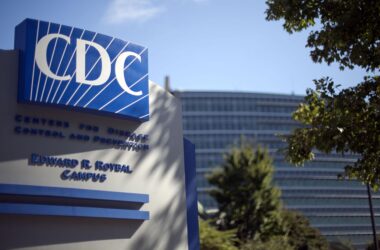Firefighter and paramedic Mike Camilleri, who is battling long COVID, is now facing heart issues. A mild case of COVID-19 led to blood pressure spikes, a racing heartbeat, and intense chest pain. This post-COVID heart trouble has left doctors searching for answers. Researchers have found that up to a year after recovering from COVID-19, individuals may be at an increased risk for heart-related problems such as blood clots, irregular heartbeats, and heart attacks. The impact of COVID-19 on heart health has been significant and could have long-lasting consequences.
It is still unclear who is most at risk for these heart-related complications and whether they are reversible or indicative of future heart disease. Doctors fear that the lingering health problems caused by COVID-19 will have far-reaching effects that will be felt for generations to come.
Heart disease has long been the leading cause of death in the United States and around the world. However, before the pandemic, heart-related death rates were at record lows. COVID-19 has since reversed a decade of progress, with heart attack-caused deaths rising during every surge of the virus. Furthermore, high blood pressure, a significant risk factor for heart disease, has increased measurably during the pandemic.
Those suffering from long COVID often experience a variety of symptoms, including fatigue and brain fog. Some of these patients also develop cardiovascular issues, which can sometimes be the first or main symptom of post-COVID damage. It is crucial for both patients and doctors to be aware of this possibility.
One patient, Mike Camilleri, sought help from a long COVID clinic after experiencing heart-related symptoms following a COVID-19 infection. Under the care of a cardiologist, his symptoms improved with the use of medications that dilate blood vessels and regulate the fight-or-flight response. Additionally, physical therapy and rehabilitation helped normalize his heart rate.
Research has shown that survivors of COVID-19 are more likely to experience abnormal heartbeats, blood clots, chest pain, and heart attacks or strokes for up to a year after recovery. This risk, although small on an individual basis, adds up to millions of people needing care for heart-related symptoms due to the sheer scale of the pandemic.
As the world continues to grapple with the impact of COVID-19 on heart health, it is essential to understand and address these cardiac aftershocks. Researchers are studying the link between COVID-19 and heart damage, drawing parallels to rheumatic fever and its long-term effects on the heart.
While individuals cannot change their history of COVID-19 infections, they can take steps to reduce their risk of heart disease by addressing other factors such as high cholesterol, high blood pressure, poorly controlled diabetes, and smoking. Prioritizing heart health is now more critical than ever.
The Associated Press Health and Science Department receives support from the Howard Hughes Medical Institute’s Science and Educational Media Group. The AP is solely responsible for all content.
For more information, visit The Washington Times COVID-19 resource page.
Unique Perspective:
The impact of COVID-19 on heart health is a significant concern that has arisen during the pandemic. While much attention has been focused on the respiratory effects of the virus, the long-term cardiovascular consequences are only beginning to be understood. It is alarming to see how a seemingly mild case of COVID-19 can lead to severe heart-related complications, highlighting the importance of early detection and proper medical care. As doctors work to find solutions and address the post-COVID heart trouble, it is crucial for individuals to prioritize their heart health and take steps to reduce any pre-existing risk factors. By doing so, we can mitigate the long-term effects of COVID-19 on the nation’s heart health and improve overall well-being.








